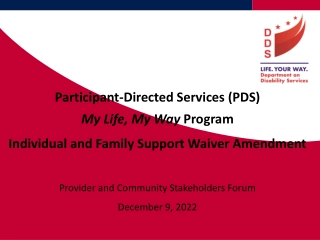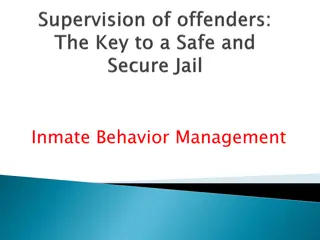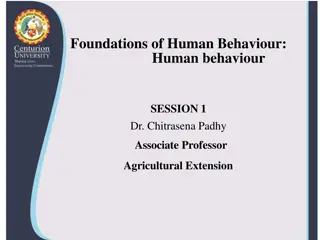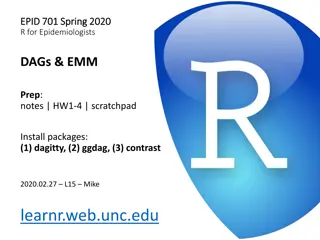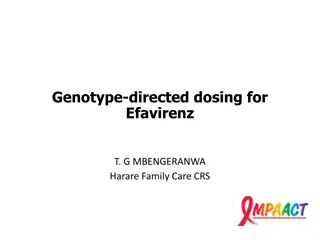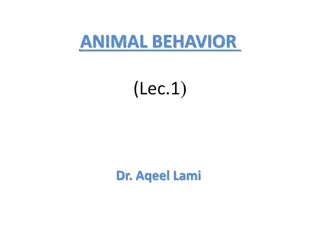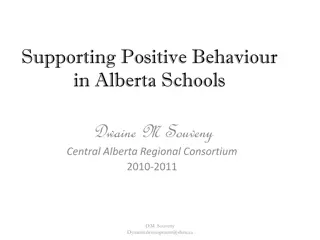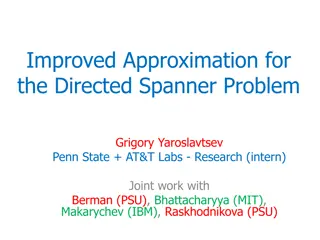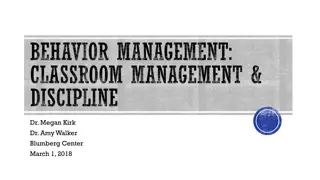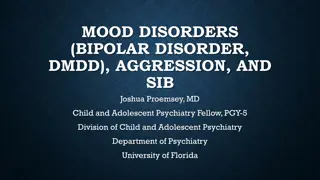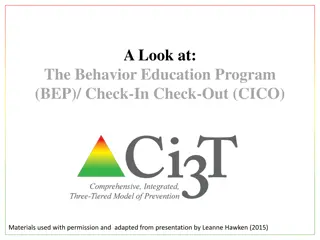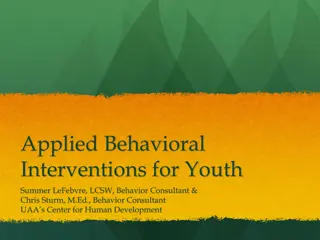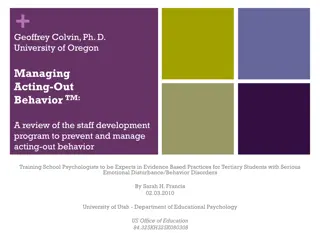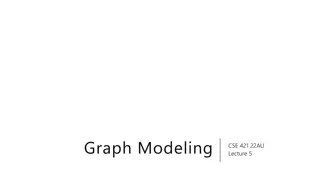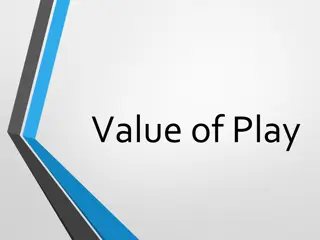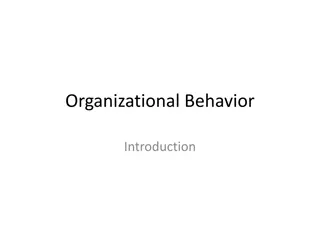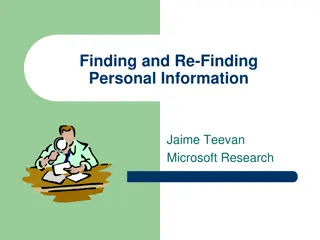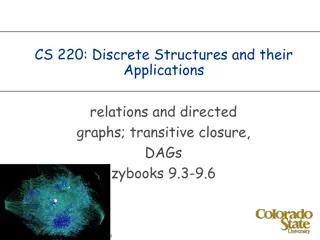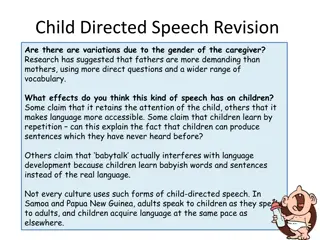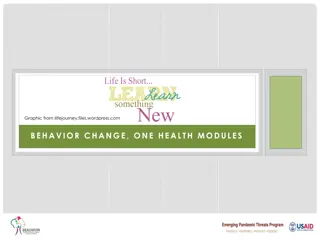Participant-Directed Services (PDS)
The new service option, Participant-Directed Services (PDS), in the Individual and Family Support (IFS) Waiver. PDS offers district residents enrolled in the IFS Waiver the opportunity to have more choice, control, and flexibility over the services they receive, allowing them to live in their natura
1 views • 20 slides
Function Based Thinking
Function-based thinking in Missouri Schoolwide Positive Behavior Support, emphasizing data-based decision-making, mission clarity, and effective teaching practices. Understand how behavior is related to the environment and how environmental interventions play a key role in shaping expected behaviors
6 views • 27 slides
Army Rapid Capabilities and Critical Technologies Office Symposium 2023
LTG Robert A. Rasch, Jr., U.S. Army Director of Hypersonics, Directed Energy, Space, and Rapid Acquisition, presented updates on various defense projects at the Space and Missile Defense Symposium 2023. Topics included the Long Range Hypersonic Weapon program, Mid-Range Capability development, and D
5 views • 11 slides
Addressing Predatory Behavior in the Fellowship
Predatory behavior, especially towards vulnerable members, is a concerning issue in the fellowship. This behavior includes unwelcome advances, exploitation of power dynamics, and institutional sexism. The discussion on predatory behavior necessitates honest dialogue and a united approach for a safer
3 views • 13 slides
Understanding Consumer Behavior in Marketing
The design of a marketing program starts with understanding consumer behavior. Consumers, as the end users, play a crucial role in shaping market trends. Producers seek insights into consumer personas, market behaviors, and influencing factors. Management focuses on the consequences of consumer beha
2 views • 26 slides
Understanding Psychology: The Science of Behavior and Mental Processes
Psychology is the scientific study of behavior and mental processes. Psychologists study both observable behavior and private mental processes. The primary goals of psychology are to describe, understand, predict, and control behavior. Different branches of psychology, such as applied psychology, cl
2 views • 29 slides
Understanding Inmate Behavior Management in Correctional Settings
Inmate Behavior Management in correctional facilities involves supervising inmates, implementing corrective discipline, and fostering a fair and consistent environment. It emphasizes the importance of behavior management plans, identifying undesirable traits in supervision, and passing educational a
0 views • 19 slides
Understanding Human Behavior: Foundations and Factors
Human behavior is a multifaceted subject influenced by genetic makeup, culture, and individual values. It encompasses both overt actions and covert thoughts, a product of the individual and environmental factors. Psychologists study behavior from visible (overt) actions like playing football to inne
0 views • 20 slides
Understanding Directed Acyclic Graphs (DAGs) for Causal Inference
Directed Acyclic Graphs (DAGs) play a crucial role in documenting causal assumptions and guiding variable selection in epidemiological models. They inform us about causal relationships between variables and help answer complex questions related to causality. DAGs must meet specific requirements like
1 views • 63 slides
The Importance of Directed Time Calendars in Managing Workload
Understanding directed time calendars is essential for educators to manage workload effectively. These calendars outline teachers' working hours and responsibilities, helping to combat excessive workload issues. By monitoring directed time and engaging in the bargaining calendar, educators can addre
0 views • 8 slides
Understanding Normal and Abnormal Behavior: Perspectives and Definitions
Normal behavior varies from person to person and society, influenced by individual preferences and societal norms. Abnormal behavior is characterized by an inability to function effectively or personal discomfort. The concept of normality and abnormality in psychology raises complex questions about
2 views • 8 slides
Holland Brook School Spring Concert 2017 Featuring Strings, Chorus, and Bands
Holland Brook School is hosting its annual Spring Concert on June 8, 2017, at 7:00 PM. The concert will feature performances by the Strings, Chorus, and Bands, showcasing talented students across different grades. Directed by Mr. Jack Hasselbring, the event will include delightful musical pieces ran
1 views • 14 slides
School Community Guidelines for Respectful Behavior
Students are encouraged to treat each other with respect and kindness, engage actively in lessons, complete assigned work, and cooperate with teachers and adults. Positive behavior is rewarded with points and participation in trips, while negative behavior may result in sanctions. Various levels of
1 views • 19 slides
Understanding Human Behavior: Insights for Social Workers
This material delves into the intricacies of human behavior, exploring factors influencing behavior such as heredity, environment, intelligence, needs, and motives. It covers the concept of human behavior, stages in life from conception to old age, and theories of human development by eminent psycho
2 views • 71 slides
Genotype-Directed Dosing for Efavirenz in Children Study
The study focuses on genotype-directed dosing of Efavirenz in children with HIV, aiming to optimize treatment options and dosages based on genetic factors. It explores the challenges in treating children with HIV, especially in resource-limited settings, and discusses the impact of genetic variation
0 views • 21 slides
Understanding Animal Behavior and Ecology
Animal behavior encompasses a range of activities such as feeding, breeding, and social interactions. Ethology focuses on studying behavior in natural environments, while behavioral ecology examines ecological aspects like predator-prey interactions. Sociobiology delves into the evolution of social
3 views • 5 slides
Holland Brook School Winter Concert Featuring 5th Grade Strings & Chorus, 4th & 5th Grade, Band, February 27, 2017
The Holland Brook School Winter Concert is scheduled for February 27, 2017, at 7:00 PM. The event will feature performances by the 5th Grade Strings, 4th & 5th Grade Chorus, and 5th Grade Band. The 5th Grade Strings will be directed by Mr. Jack Hasselbring, presenting pieces like the New World Symph
0 views • 10 slides
Supporting Positive Behavior in Alberta Schools: Key Elements and Strategies
This content discusses strategies for supporting positive behavior in schools, focusing on key elements such as positive relationships, learning environment, differentiated instruction, understanding student behavior, and social skills instruction. It emphasizes the importance of positive reinforcem
1 views • 37 slides
Improved Approximation for the Directed Spanner Problem
Grigory Yaroslavtsev and collaborators present an improved approximation for the Directed Spanner Problem, exploring the concept of k-Spanner in directed graphs. The research delves into finding the sparsest k-spanner, preserving distances and discussing applications, including simulating synchroniz
0 views • 20 slides
Mastering the Directed Examination in Legal Trials
Explore the intricacies of the directed examination process in legal trials through expertly crafted visual aids and detailed explanations. Learn about the importance of witness selection, establishing credibility, and structuring effective questioning strategies for a compelling trial narrative.
0 views • 18 slides
Understanding Behavior Management in Classroom Settings
Explore the essential topics of behavior management, classroom strategies, and discipline in educational settings. Delve into the functions of behavior, impact of trauma on learning, and effective management techniques. Learn how to identify underlying reasons for student behaviors, discuss behavior
0 views • 76 slides
Understanding Bipolar Disorder in Children and Adolescents
Bipolar disorder in young individuals is characterized by mood swings between manic and depressive states, with various subtypes such as Bipolar I, Bipolar II, and Cyclothymia. Clinical characteristics include hypomania and mania, which present with distinct symptoms such as elevated mood, increased
0 views • 35 slides
Enhancing Dementia Care through Goal-Directed Approaches
This content delves into the importance of goal-directed care in improving the quality of life for individuals with dementia. It covers shifting the focus of care from disease-based to person-centered approaches, outlining the goals of dementia care at different stages, and emphasizing the value of
0 views • 19 slides
Targeting Emotions to Facilitate Behavior Change in Older Adults
Efforts in changing health behavior have traditionally focused on social and cognitive factors, but recent evidence highlights the importance of affective states in decision-making and behavior change. Janey Peterson discusses the role of emotions in achieving and sustaining behavior change to benef
0 views • 11 slides
Advanced Program Optimization Techniques for Efficient Verification and Goal-Directed Search
Explore advanced program optimization techniques targeting program verification and goal-directed search, including deep assertions, inlining-based verifiers, and lazy inlining algorithms. Learn about optimizations that preserve semantics and improve execution/verification time.
0 views • 34 slides
Behavior Education Program (BEP) / Check-In Check-Out (CICO) Overview
The Behavior Education Program (BEP) and Check-In Check-Out (CICO) are structured interventions aimed at improving behavior in students through goal-setting, feedback, and reinforcement. This program involves daily check-ins and check-outs with staff members, regular feedback from teachers, and the
0 views • 49 slides
Grading Criteria for Effort and Behavior in Educational Reporting
Effort and behavior in educational settings are evaluated based on criteria ranging from Excellent to Causing Concern. Pupils demonstrating excellent behavior show respect, responsibility, and positive engagement in learning. Those with good behavior exhibit cooperation and respect for others, albei
0 views • 9 slides
Understanding Applied Behavior Analysis (ABA) for Youth Interventions
Applied Behavior Analysis (ABA) is a science focusing on improving human behavior by increasing desired behaviors, teaching new skills, and generalizing behaviors. ABA emphasizes observable behaviors, measurement of behavior change, and the use of interventions in various settings like classrooms an
0 views • 25 slides
PBIS Expectations and Behavior Flowchart
The PBIS flowchart outlines behavior expectations and interventions for minor and major incidents in a school setting. It covers disrespectful behavior, disruption, defiance, property damage, theft, possession of weapons, and more. The flowchart guides teachers and staff on managing and addressing s
0 views • 6 slides
Managing Acting-Out Behavior: A Staff Development Program Review
This review discusses a staff development program created by Geoffrey Colvin, Ph.D., from the University of Oregon, focusing on preventing and managing acting-out behavior in students with emotional disturbance or behavior disorders. The program includes video presentations, strategies for behavior
0 views • 22 slides
Understanding Graph Modeling and DFS Applications
Explore the world of graph modeling and DFS applications through lectures on graph vocabulary, edge classification in directed graphs, and the use of DFS to find cycles. Discover the significance of tree edges, back edges, forward edges, and cross edges in graph traversal. Learn how DFS can be utili
0 views • 32 slides
Understanding Different Types of Child Play Behavior
Explore the various stages of play behavior in children, from unoccupied and onlooker behavior to solitary, parallel, associative, and cooperative play. Learn how children interact with toys and each other at different developmental stages, shaping their social skills and creativity. Discover the di
0 views • 12 slides
Understanding Organizational Behavior and Individual Behavior
Organizational Behavior (OB) is a multidisciplinary field that combines knowledge from various disciplines to study and manage organizations effectively. It emphasizes the application of this knowledge to enhance organizational effectiveness and the well-being of participants. OB is a useful concept
0 views • 38 slides
Function-Based Behavior Support Plans: A Comprehensive Guide
Explore the process of developing Function-Based Behavior Support Plans (BSP) using Functional Behavioral Assessment (FBA). Understand the concepts of function and functional behavior assessment, learn how FBA/BSP fits within a multi-tiered support system, and practice developing BSP for students. D
0 views • 74 slides
Understanding Personal Information Retrieval Behavior
This collection of images and excerpts explores the process of finding and re-finding personal information, focusing on methods such as email search, web browsing, and file retrieval. Insights from studies on orienteering behavior in directed search shed light on how individuals locate specific info
0 views • 32 slides
Coverage-Directed Differential Testing of JVM Implementations
The paper discusses the importance of coverage-directed differential testing for Java Virtual Machine (JVM) implementations. It covers challenges in identifying JVM defects, solutions using test oracles, and examples of JVM behavior discrepancies. The study emphasizes the need for obtaining test cla
0 views • 45 slides
Behaviorally Directed Hiring Process Overview
Behaviorally Directed Hiring Process is designed to predict future performance based on past behavior. Educators are often involved in the hiring process, but few are prepared to conduct it. The process involves developing the applicant pool, building a targeted candidate, screening candidates, and
0 views • 8 slides
Understanding Directed Graphs and Adjacency Matrices in Discrete Structures
Explore the concepts of binary relations, directed graphs, adjacency matrices, transitive closure, and walks in the context of discrete structures. Learn how vertices, edges, in-degrees, out-degrees, and self-loops are defined in directed graphs. Understand the importance of adjacency matrices in re
0 views • 28 slides
Insights into Child-Directed Speech Variations and Effects
Research examines variations in child-directed speech due to caregiver gender, with fathers often being more demanding than mothers. Such speech impacts children's attention, language accessibility, and learning mechanisms, showcasing contrasting views on its effectiveness. The article delves into p
0 views • 10 slides
Behavior Change and Health Modules Overview
Explore behavior modification theories, change management concepts, and competency modules to design effective behavior modification strategies for occupational health interventions in communities. Learn the difference between professional-directed and patient-centered behavior change approaches thr
0 views • 41 slides
